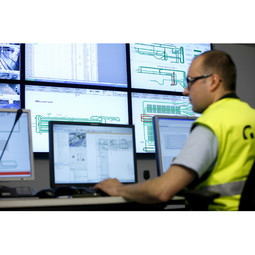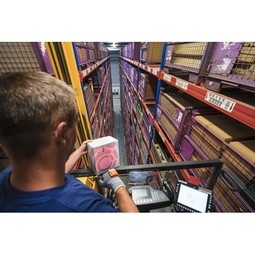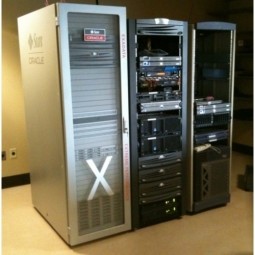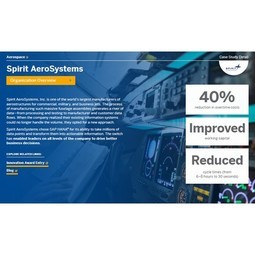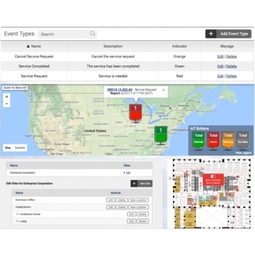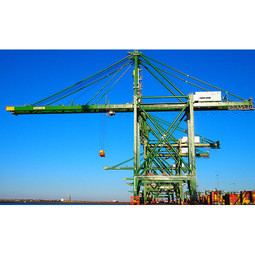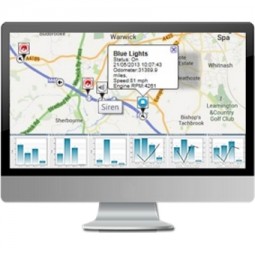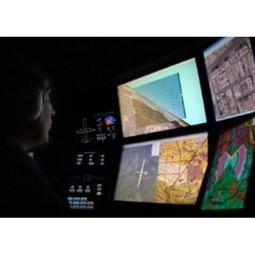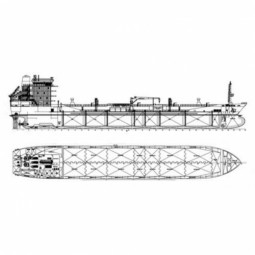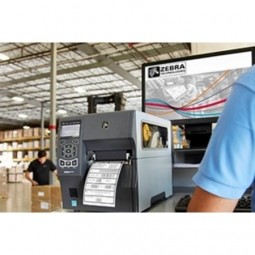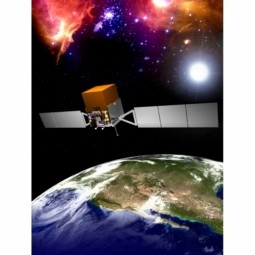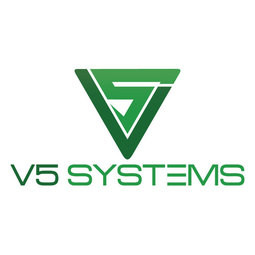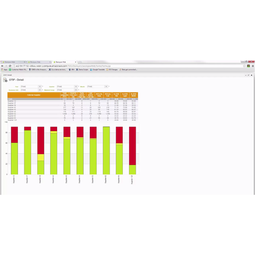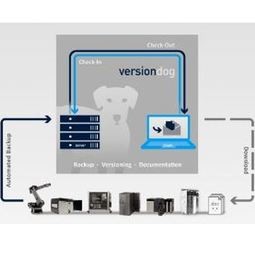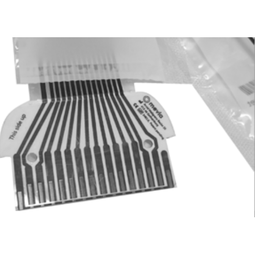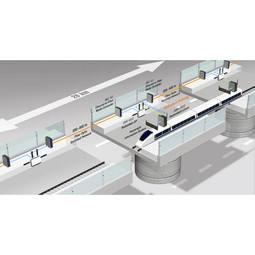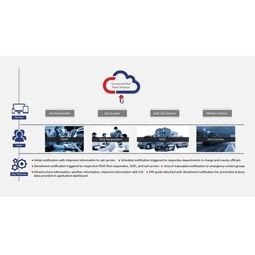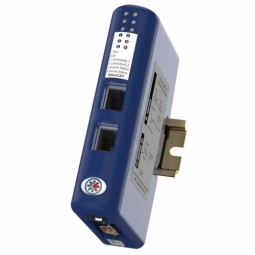Case Studies.
Our Case Study database tracks 8,303 case studies in the global enterprise technology ecosystem.
Filters allow you to explore case studies quickly and efficiently.
-
(11)
- (4)
- (2)
- (2)
- View all
-
(9)
- (3)
- (2)
- (2)
- View all
-
(7)
- (3)
- (2)
- (1)
- View all
-
(7)
- (3)
- (2)
- (1)
- View all
-
(5)
- (4)
- (1)
- View all 11 Technologies
- (11)
- (8)
- (3)
- (2)
- (2)
- View all 12 Industries
- (11)
- (9)
- (4)
- (2)
- (1)
- View all 9 Functional Areas
- (3)
- (3)
- (2)
- (2)
- (2)
- View all 18 Use Cases
- (2)
- (2)
- (2)
- (2)
- (1)
- View all 33 Suppliers
Selected Filters
42 case studies
|
Airport SCADA Systems Improve Service Levels
Modern airports are one of the busiest environments on Earth and rely on process automation equipment to ensure service operators achieve their KPIs. Increasingly airport SCADA systems are being used to control all aspects of the operation and associated facilities. This is because unplanned system downtime can cost dearly, both in terms of reduced revenues and the associated loss of customer satisfaction due to inevitable travel inconvenience and disruption.
|
|
BMW Story Spare Part Logistics
ProGlove
|
|
WestJet Oracle Exadata Technical Case Study
Oracle
WestJet wanted to grow Guest Self Service to 60% and implement a database platform that will provide WestJet's exceptional Guest Experience by 2016.
|
|
Accelerate Production for Spirit AeroSystems
SAP
The manufacture and assembly of massive fuselage assemblies and other large structures generates a river of data. In fact, the bill of materials for a single fuselage alone can be millions of rows of data. In-house production processes and testing, as well as other manufacturers and customers created data flows that overwhelmed previous processes and information systems. Spirit’s customer base had grown substantially since their 2005 divestiture from Boeing, resulting in a $41 billion backlog of orders to fill. To address this backlog, meet increased customer demands and minimize additional capital investment, the company needed a way to improve throughput in the existing operational footprint. Spirit had a requirement from customers to increase fuselage production by 30%. To accomplish this goal, Spirit needed real-time information on its value chain and workflow. However, the two terabytes of data being pulled from their SAP ECC was unmanageable and overloaded their business warehouse. It had become time-consuming and difficult to pull aggregate data, disaggregate it for the needed information and then reassemble to create a report. During the 6-8 hours it took to build a report, another work shift (they run three per day) would have already taken place, thus the report content was out-of-date before it was ever delivered. As a result, supervisors often had to rely on manual efforts to provide charts, reports and analysis.
|
|
Harley-Davidson Revs Up Logistics
Add speed, visibility and efficiency to the U.S. logistics processes of one of the world's leading motorcycle manufacturers, to accommodate growth and enhance service for manufacturing facilities and dealerships.
|
|
SAP Leonardo Enabling Rocket Science
SAP
At times, ULA has as many as 15 different operating systems dedicated to overlapping processes, such as rocket design, testing, and launch. Multiple systems created unnecessary costs and unwanted confusion among workers at offices, factories, and launch sites in different location. In order to improve collaboration and transparency during vital activities that directly influence mission success, ULA wanted to improve data sharing and streamline manufacturing processes.
|
|
ZipLine
Bright Wolf
When connected devices, from simple IoT buttons to complex mining equipment, medical devices and more are distributed across organizations, sites, and locations with many roles and data types along with requirements for who can access which data, you've got an IoT Data Management, Access Control, and Device Lifecycle nightmare.
|
|
NASA/JPL's Mars Curiosity Mission
Amazon Web Services
NASA's Jet Propulsion Laboratory wanted to share the launching of Curiosity with fans by providing up-to-the-minute details of the mission. Supporting hundreds of thousands of concurrent visitors to the website would have been very difficult since NASA did not have significant web and live video streaming infrastructure.
|
|
XBee-Enabled Sensors Monitor Harsh Environments
Digi
Libelium needed radio frequency modules to guarantee accurate transmission of information from sensors placed in isolated or difficult-to-access areas. To enable Libelium to develop its sensor devices, the company needed to source a wireless networking provider that offered both long-range links and the interconnection of wireless networks of different frequencies.
|
|
NB-IoT Boosts Smart Bike Sharing
Huawei
Ofo Bike sharing company wanted to improve its user experience by providing seamless network connectivity to its users where they can locate bikes and pedal away quickly exactly when and where they need one, but challenge is to avoid frustration if user finds difficulties in finding bikes, unlocking the bikes and making payments
|
|
Industrial IoT in Heavy Equipment
Amplía
Keeping machines up and running, in safe condition and at their top performance is a must. Getting from them a real-time information on their status to anticipate possible failures and downtime is an absolute need. Collecting operational data from the machine to monitor business processes, detect bottlenecks and inefficiencies is a key factor to improve time terminal performance. And presenting the data in a friendly, customizable graphical interface, displaying the machines and business KPIs evolution and real-time status is a key factor to keep the team aligned with the company goals.
|
|
IIC Smart Airline Baggage Management Testbed
Unlike the airline reservation systems with a limited number of global providers like Amadeus, Travelport, Sabre and Share, the ecosystem around the airports and airlines is heavily fragmented. There are no centralized systems that can unify all its stakeholders’ data such as: • Airline • Passengers • Airport vendors like baggage handling companies, fuel and catering providers • Airport tenant (shops, malls etc.) • Parking and ground transportation • Security (TSA) & Regulatory bodies Many luggage tracking systems at the moment are simply isolated mobile smartphone applications tied into a proprietary third-party web application using such things as Bluetooth baggage tags. The challenge that the Smart Airline Baggage Management testbed is addressing is bringing together and integrating disparate and isolated airline enterprise applications and systems into a single solution to better handle smart baggage across the airline and aviation ecosystems. GOALS The Smart Airline Baggage Management testbed, part of a broader aviation ecosystem vision, is aimed at reducing the instances of delayed, damaged and lost bags leading to lower economic risk exposure to the airlines; increasing the ability to track and report on baggage including location and weight changes to prevent theft and loss; and improve customer satisfaction through better communication including offering new value-added services to frequent flyers. The testbed is also aimed at helping airlines address the new baggage handling requirements set out by IATA in Resolution 753 requiring airlines to implement more comprehensive acquisition and delivery solutions for baggage tracking and handling by June 2018. This target is also outlined in the broader IATA 2015 White Paper titled “Simplifying the Business.”
|
|
A Smarter Brain for Your Train…
Intel
Have you ever felt overloaded by too much sensory input? The results can be problematic, even risky if you’re driving at the time. The same holds true for trains, ships, oil rigs, and many other industrial assets. The data processing challenges on these complex machines are growing rapidly as the number of sensors increases; yet so are the opportunities to transform operations by using all the available data effectively. A modern locomotive, for example, has as many as 200 sensors generating more than a billion data points per second.
|
|
Eseye puts Airmax on Target for 15% Cost Reduction
Eseye
Airmax wanted a provider who would take complete responsibility of their connectivity, without restricting them to a single network. They wanted a simple solution along with assurance that they were getting the best value for money, customer care and network flexibility.
|
|
Drill ship power challenge: hybrid solution solves distribution issues
Rittal
Aspin Kemp & Associates (AKA), a manufacturer of electrical power and control systems headquartered in Montague, PEI, encountered one with its hybrid power initiative, the first hybrid drill floor destined for installation on ultra-deepwater drill ships operated by Transocean, Swiss offshore drilling contractors. Since on-site modification was impossible and scrap recycling of any modifications was unacceptable, the enclosures had to arrive ready-to-install.
|
|
Unmanned Aircraft Systems (UAS) Ground Control Station (GCS)
RTI
General Atomics had to meet strict requirements for data bandwidth and availability. They could have designed and implemented a custom solution for data integration on their own, but that would have significantly delayed the project. Plus the lifecycle cost of developing and maintaining a custom software solution for a specific project can be enormous.
|
|
Ensures Tanker Safety and Emissions Compliance
Adroit Technologies
Storage tanks are irregular in shape and a certain amount of mathematical modelling is required to get an accurate representation of volume and, more importantly, the weight of material in each tank. In addition, countries have different emission regulations, so the ships position needed to be accurately known in order to geotag emission data.
|
|
Improve Postal Mail and Package Delivery Company Efficiency and Service
Zebra Technologies
Postal mail and package delivery company wanted to replace legacy yard management system, increase inbound and outbound yard velocity, improve priority parcel delivery time and accuracy, reduce workload and overtime, reduce driver detention and measure performance and utilization of yard resources.
|
|
Advantech’s Flight Information Display Systems Take Off at Airport in China
Advantech
Improve infrastructure efficiencyProvide a solid foundation for remote management technology used in Advantech’s Flight Information Display System (FIDS), rapid provisioning and optimal use of all computing resources.Reduce operational costsEnable customers to reduce time and manpower costs in discovering, healing, and protecting their networked computing assets.
|
|
Operational Efficiency through IoT
SenseGrow
A GSPC (Gujarat State Petroleum Corporation) Group company; GSPL is a pioneer in developing energy transportation infrastructure and connecting natural gas supply sources including LNG terminals to growing markets. The company transports over 22.99 MMSCMD of natural gas to around 133 Customers. Their customers include Refineries, Steel Plants, Fertilizer Plants, Petrochemical Plants, Power Plants, Glass industries, Textiles, Chemical, City Gas Distribution Companies and other miscellaneous industries. The major challenges GSPL was facing were: - Prohibitively High Energy Bills. - Lack of Monitoring Solutions to track energy consumption across the entire pipeline. - Inability to Gather Data from all 124 terminal stations into a central location. - Inability to do a Comprehensive Data Analysis to balance consumption. Requirements In addition to addressing the challenges, GSPL also had some additional requirements, such as: - Automated Data Collection. - Alarms and Alerts for specific electrical parameters that require special attention. - Actionable Insights for Proactive and Autonomous energy management. - Online Platform to monitor, analyze and act. - Centralized Remote Monitoring and Analysis.
|
|
Amadeus Powering Travel Industry
Couchbase
Amadeus is a Global Distribution System (GDS), meaning they take travel and tourism data from airlines, car companies, hotel chains, cruise lines, etc., and distribute it to travel agencies, corporations, travel websites, airports, and other distributors. As the world's leading GDS, Amadeus must manage a huge workload daily, with absolutely no room for service outages, supporting:- 3.7 million bookings per day- 1.6 billion transactions per day- 45 billion database accesses per day- 13 petabytes of storage- Response time of less than 0.5 milliseconds- Thousands of developers pushing new features (100+ changes per day)
|
|
General Dynamics Uses Wind River Simics to Meet NASA Challenge
Wind River
In designing and building Fermi, the General Dynamics C4 Systems business unit was faced with a challenge: it needed to provide an environment that could support rigorous testing by multiple Fermi subsystem groups before the spacecraft hardware was available.
|
|
Building a safer, smarter society with self-powered industrial IoT solutions
Dell Technologies
To fuel growth and innovation, V5 Systems needed to increase market exposure and evolve its intelligent security platform to support more use cases, requirements and technologies.
|
|
Supplier Performance Management
Decisyon
Whether sourcing components and ingredients, outsourcing manufacturing to alternative suppliers, or staying abreast of changing market conditions, today’s procurement professionals need an agile means to evaluate supplier performance, identify new sources, negotiate best terms, and track order status—without jockeying between a multitude of Excel spreadsheets, ERP reports, and industry information streams.
|
|
Logistics processes in safe hands
AUVESY-MDT
The latest logistics and automation technologies that help to safeguard work processes in large warehouses with complex, around-the-clock global distribution networks require regular changes and improvements to function optimally. At the same time, these modifications also increase the risk of errors or even production stoppages, which are unfavorable situations.
|
|
Transforming Public Transit in Austria
Cisco
• Enhance safety for trams and passengers • Deliver an innovative passenger experience • Improve operational efficiency with better insight
|
|
Empowers Mevia to Improve Medical Adherence and Deliver Real-Time Feedback
Aeris
Mevia provides intelligent solutions to improve the quality of medical treatments. Mevia develops solutions that enable people to take the right medication at the right time. This helps improve adherence, which is one of the greatest obstacles to successful medical treatments. According to statistics from the IMS Health Institute poor adherence costs over $500bn globally in avoidable healthcare costs and the World Health Organisation said that, “improving adherence would have a greater impact on health than any potential discovery in medicine.” Mevia has created technology, which can be adapted to work in blister packs, pill dispensers, and pill pouches, providing patient support and personal adherence feedback in real-time. Missed medication and adherence is a huge challenge globally for healthcare providers and pharmaceutical companies alike. Up to $289bn is spent on missed medication and adherence issues in the US, and the global pharmaceutical market’s revenue loss is estimated to be $564 billion due to medication non adherence. Being an innovative, yet growing company, Mevia needed to partner with an expert in IoT. However, this partner needed to offer competitive pricing, global coverage, and the agility to adapt their services as Mevia grows. Many providers had high fixed costs which would prove to be a deal breaker for Mevia.
|
|
WLAN Enables Constant Connectivity Between Moving Trains and Trackside
MOXA
The link between the fast-moving train and the broader fixed trackside infrastructure has always been one of the key components of a train communications network. A major rail operator in Japan sought to build a trackside infrastructure that will offer a corridor of wireless coverage on and around the track. This would give the wireless clients on the train constant high-speed connectivity to support applications both onboard and along the rail line. There are numerous issues to face before this network is ready to tackle challenging CBTC operations: - seamless roaming is needed to provide uninterrupted communications, - EMI/EMC compliance is critical to ensure that there is no system performance degradation due to harsh wayside operating conditions. System Requirements • Constant high-speed connectivity along the track • Optimized AP coverage along a 20 km route • Seamless roaming between trackside APs • Open standards secure future upgrade path • Compliant with rolling stock and trackside standards
|
|
Connected Railroad
Prodapt
The key business challenges are: - Effective prevention of derailments - Reduction of oil spills on railroad transportation of crude oils - Alerts to first responders depending on material carried - Public safety answering points (PSAPs) and State Emergency Response Commissions (SERCs) need to know the schedule, load, and location - Flawless communication between PSAPs and first responders
|
|
Making Straddle Carriers Talk
HMS Networks
To enable the office to keep track of the straddle carriers' status, APM wanted to install a wireless system which would enable communication between the straddle carriers and the central office. The problem was that the carriers use a CAN-based bus internally which could not communicate with the Modbus-TCP-based monitoring system that was to send the data to the office.
|




